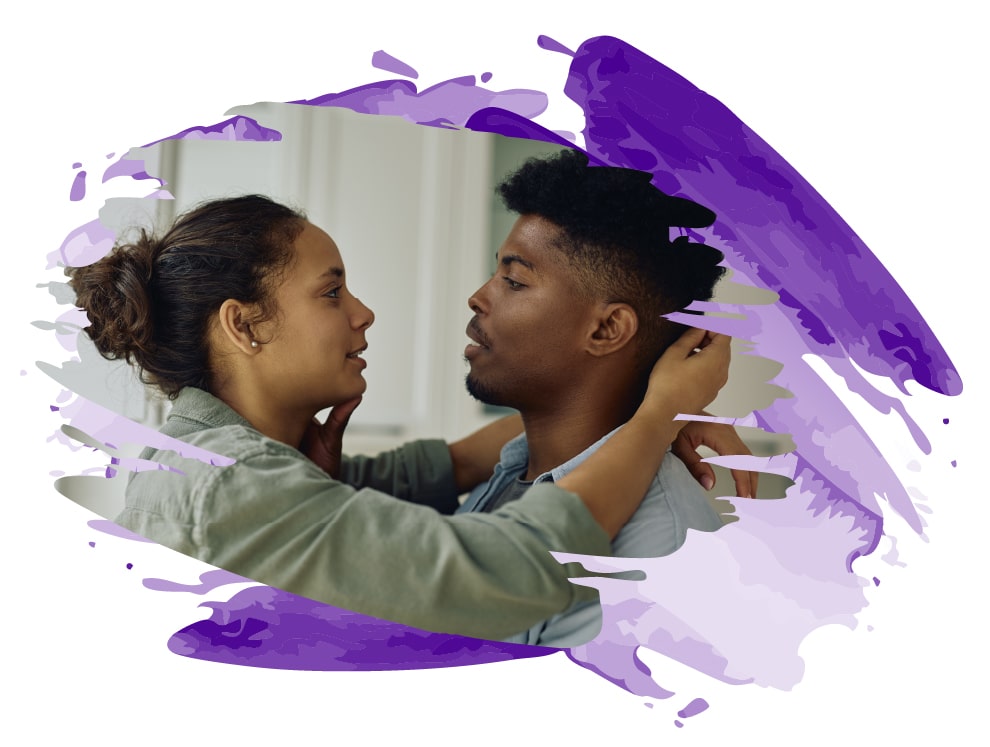For many young people of color navigating social and cultural stressors, it can be overwhelming to consider the question, “What’s love got to do with it?” As I reflect on my earliest experiences with love, I can see how each of them has been influenced by systemic racism and other sociocultural factors. As I discussed in the main love article, over time, I realized that my process of learning how to love was not occurring in a vacuum. These social forces influenced not only those who tried to love me but also my attempts to love in return.
Here are a few common impacts of the sociocultural stressors young people of color may experience:
- Emotional exhaustion from chronic identity-based stress
- Communication breakdowns
- Hypervigilance and mistrust
- Fear of vulnerability
- Resentment from unmet expectations
The good news is that, despite these stressors, young people of color often develop creative problem-solving skills and cultural traditions that allow love to flourish. There are ways to use a growth mindset and self-compassion to manage the impact on your relationships.
Lessons on love: How to grow through the stress
The science of relationships confirms that stress shapes how we love. With this knowledge, you can work to nurture healthy relationships by identifying where your reactions to stress show up. For example, you may recall a moment when your reactions to outside pressures impacted those you love in harmful ways, like snapping at your partner. You may also notice yourself withholding vulnerability at work or school to protect yourself from microaggressions. In turn, you may show up this way with your loved one, which may lead to accusations of being cold or distant.
Recognizing that societal stressors are challenging for young people of color can help you feel self-compassion during relationship difficulties rather than self-blame. Try using validations and providing emotional safety during hard moments, and then consider if this action helped you and your partner process your experiences and deepen your connection. Meaningful actions in your relationships can be small in size but big in impact.
Your action plan for healthier relationships
Overcoming relationship stressors, both internal and external, is possible. Doing so requires intentional steps that you can take for yourself and with others to grow your love and relationship skills.
Build a toolbox for yourself and others
- Nurture balance and emotional connections. Cultivate the honesty and trust needed to balance both your individual health and the health of your relationships. At the same time, try to view vulnerability as a strength that can deepen your ability to connect and be intimate.
- Navigate emotions and conflict with care. Develop the skills you need to manage intense emotions in yourself and with others. Lead with patience to gain clarity on others’ experiences and your own. Take time to appreciate the needs of others — and your own. This will strengthen your bonds.
- Build shared understanding and boundaries. Partner with your loved ones to set realistic expectations, share your needs proactively, and create healthy boundaries that honor your relationship. These efforts can help to sustain your relationships.
The Takeaway
To embody love that is lived actively, it is essential to cultivate care, affection, responsibility, respect, commitment, and trust in your connections. Your commitment to practicing relevant skills from this plan can shape your relationships. In very real ways, these efforts will support your mental health and emotional well-being.
References
- Ogolsky, B. G. (Ed.). (2023). The Sociocultural Context of Romantic Relationships. Cambridge: Cambridge University Press.
- Rice, T. M., Jenkins, A. I. C., Smith, S. M., Alexander, C., & McGregor, C. M. (2023). Racial discrimination and romantic relationship dynamics among Black Americans: A systematic review. Journal of Family Theory & Review, 15(4), 793–821. https://doi.org/10.1111/jftr.12535
- Fenzel, L. M., Richardson, K. D. The Stress Process Among Emerging Adults: Spirituality, Mindfulness, Resilience, and Self-Compassion as Predictors of Life Satisfaction and Depressive Symptoms. J Adult Dev 29, 1–15 (2022). https://doi.org/10.1007/s10804-021-09384-2

